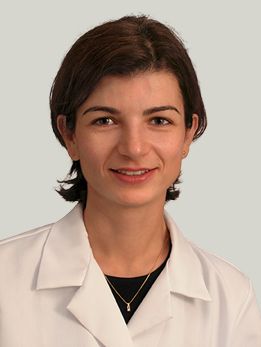CPAP for OSA Patients with Prediabetes Lowers Heart Rate, Improves CV Health
A trial of patients with prediabetes and OSA details the cardiovascular benefit of optimized CPAP treatment.
This article was originally published on PracticalCardiology.com
Esra Tasali, MD

Results from a trial led by University of Chicago is shedding light on the impact continuous positive airway pressure (CPAP) treatment can have on the resting heart rate of diabetic patients throughout the day.
In what investigators claim is the first study of its kind, results of the randomized clinical trial suggest optimal CPAP treatment at night can lower daytime resting heart rates in patients with prediabetes who have obstructive sleep apnea (OSA).
"A 4- to 5-beat-per-minute drop in heart rate that we observed is comparable to what you would get from regular exercise," said lead investigator Esra Tasali, MD, Director of the Sleep Research Center at the University of Chicago Medicine, in a statement. "Our breakthrough finding is the carryover of the lowered resting heart rate into the daytime and the cardiovascular benefit of that."
With previous research suggesting prediabetes and diabetes was prevalent in more than 60% of patients worldwide, Tasali and colleagues from McGill University in Montreal designed a randomized clinical trial with the aim of clearly demonstrating the cardiovascular benefit of CPAP treatment. With this in mind, they designed their trial to assess this benefit in a cohort of patients with OSA and prediabetes randomized in a 2:1 ratio to 2 weeks of all-night CPAP treatment or oral placebo every night in a laboratory setting.
In total, 39 patients were enrolled in the trial—26 to CPAP treatment and 13 to oral placebo. All patients included in the trial were 45 years of age or older, had a BMI of 25 kg/m2 or greater, and were given a single-lead ECG device and triaxis accelerometer to monitor heart rate, physical activity, and posture during the 19-day study period. Investigators noted approximately 66% of the cohort were men, 72% were obese, 82% had moderate-to-severe OSA, and 46% reported excessive daytime sleepiness.
Over the course of the treatment period, patients in the CPAP group had significantly lower mean residual apnea‐hypopnea index (AHI) (event/hour; 3.3±2.3 vs 39.3±21.6; P <.001), lower mean residual oxygen desaturation index (event/hour; 1.2±1.4 vs 29.5±22.3; P <.001), and lower mean residual microarousal index (event/hour; 12.8±5.2 vs 38.6±20.1; P <.001).
Upon analysis, results indicated CPAP use reduced daytime resting heart rate compared to oral placebo (treatment difference, -4.1 beats/min; 95% CI, -6.5 to -1.7; P=.002). Additionally, investigators pointed out the results of the suggested the magnitude of reduction in daytime resting heart rate after treatment was significantly correlated with the magnitude of decrease in plasma norepinephrine (r=.44; P=.02) and the magnitude of decrease in OSA severity (AHI [r=.49, P=.005], oxygen desaturation index [r=.50, P=.003], and microarousal index [r=.57, P <.001]).
In their conclusion, investigators suggest results of the proof-of-concept trial demonstrate the benefit of CPAP treatment on resting heart rate throughout the day and call for additional research to further elucidate the cardiovascular benefit of CPAP treatment in patients with prediabetes and diabetes.
"The majority of patients don't make a connection as to how their sleep can affect their hearts. With regards to their sleep apnea, patients just think how sleepy they are the next day," added Tasali in the aforementioned statement. "I always explain to my patients that sleep apnea can also be harmful to their cardiovascular health."
This study, “Optimal Continuous Positive Airway Pressure Treatment of Obstructive Sleep Apnea Reduces Daytime Resting Heart Rate in Prediabetes: A Randomized Controlled Study,” was published in the Journal of the American Heart Association.